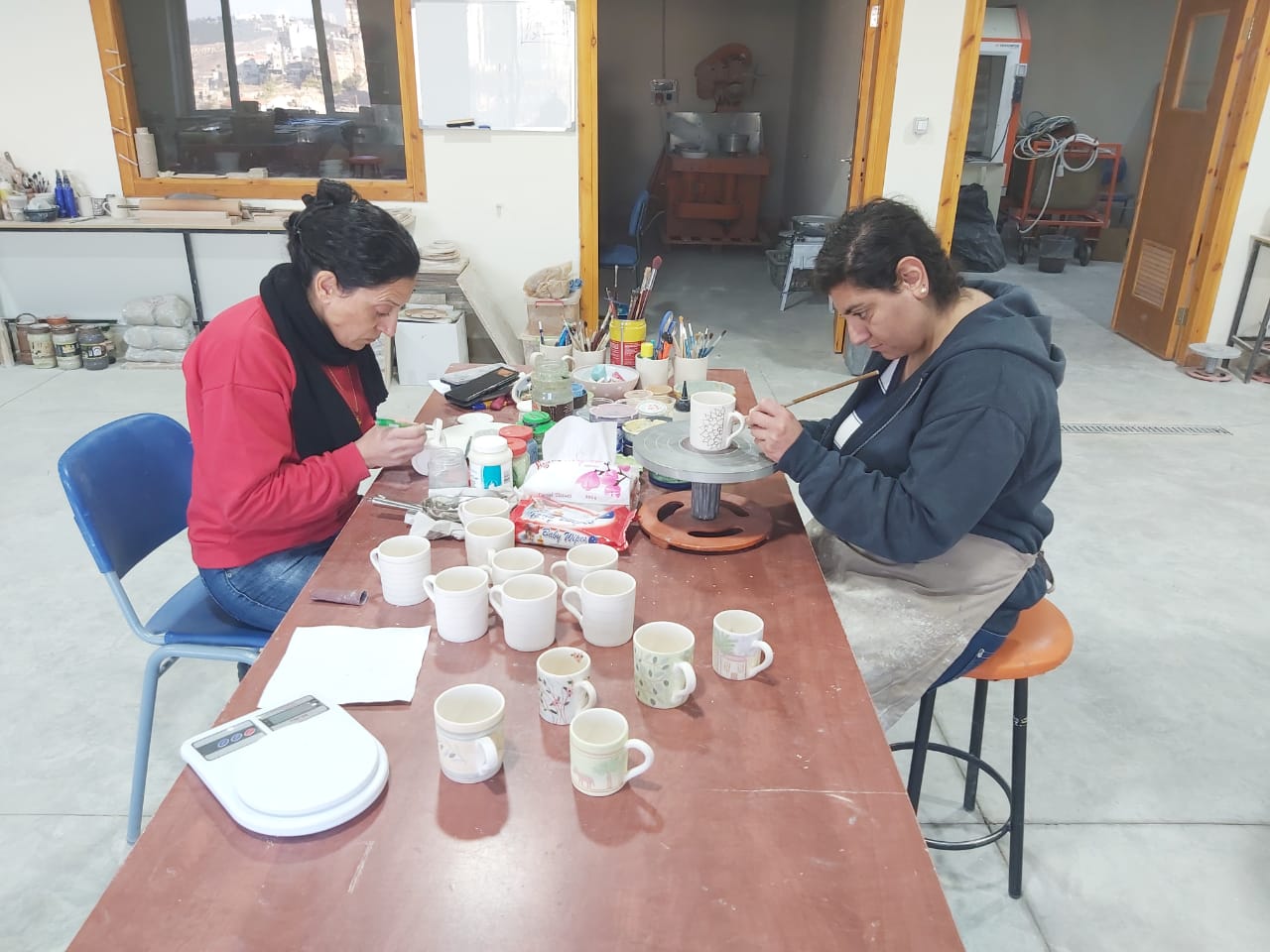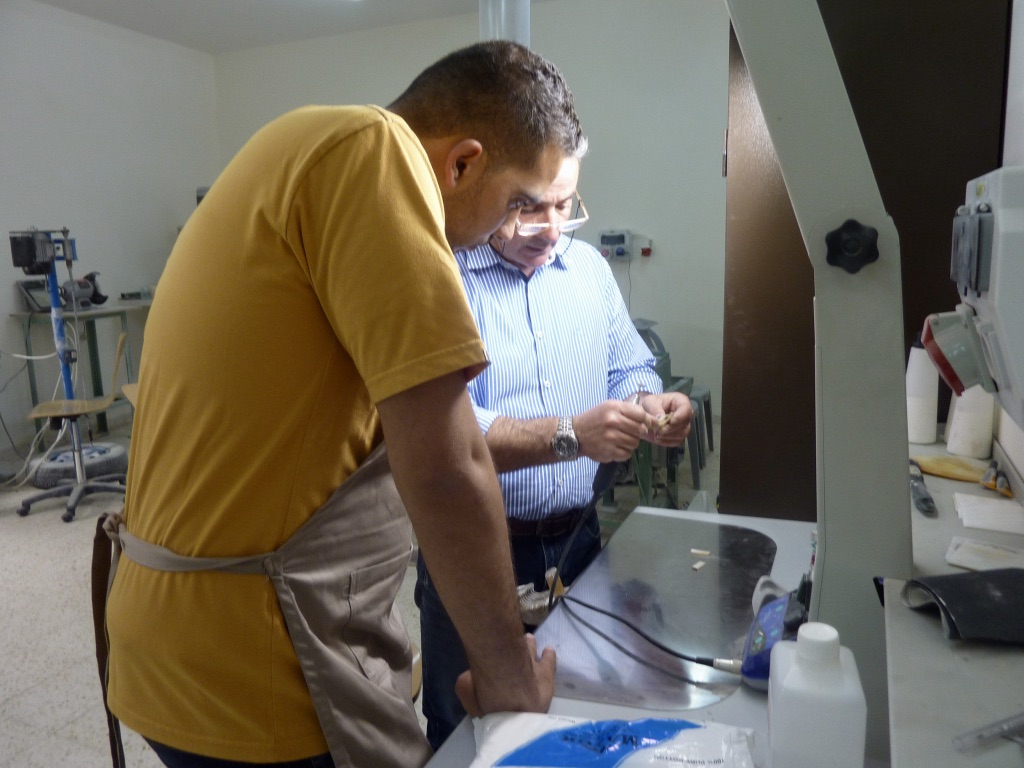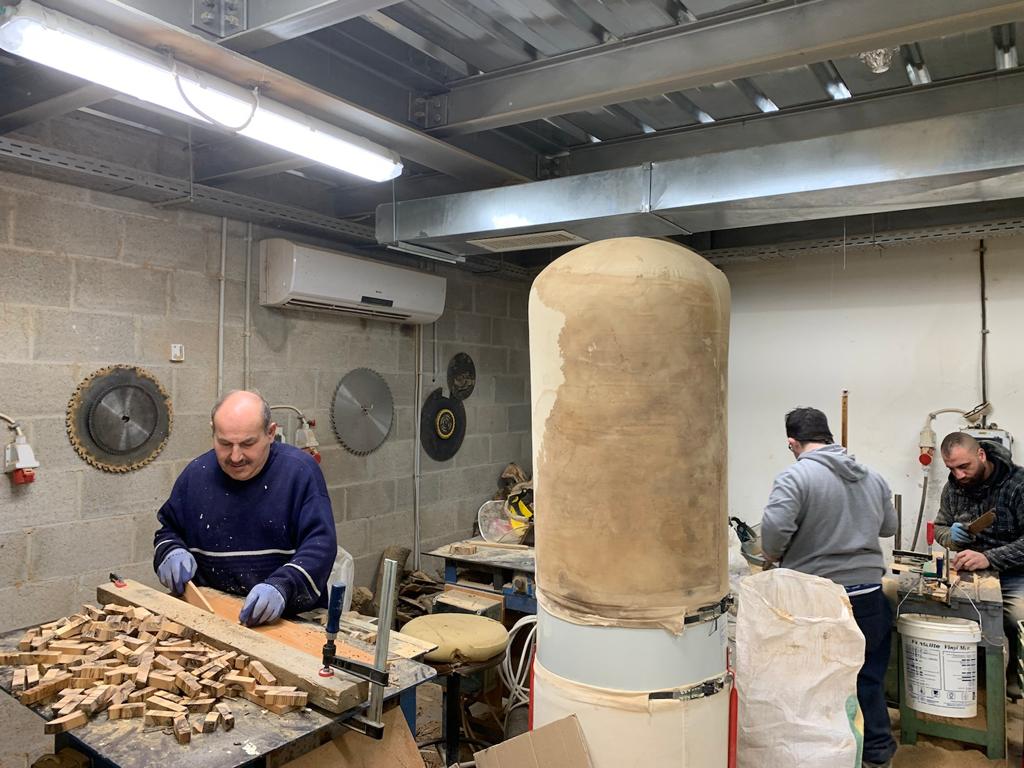
Piccirillo Center against the crisis that kills Palestinian handicrafts
by Marco Visotti
The situation in the Palestinian Territories continues to be particularly fragile socially, politically and economically. The socio-economic fabric of Palestine, made up of 90 percent small or even micro businesses, has seen heavy closures imposed by the pandemic over the past year. According to the Palestinian Central Bureau of Statistics (PCBS), this has led to an increase in the unemployment rate to 26.6 percent and a consequent reduction in GDP per capita, which now stands at $2943 annually.
The consequences of the Covid-19 pandemic have dragged Palestine's already precarious economic fabric toward collapse, with far-reaching economic fallout from slowing imports and exports, reduced labor supply, and halted economic activity and productivity. Among the hardest hit sectors is handicrafts, with its centuries-old tradition in olive woodworking, mother-of-pearl and ceramics. It is reported that in the last year, during the pandemic, only 30 workshops out of 400 remained open in Bethlehem municipality. Artisans who lost their jobs due to closure, either temporary or permanent, number about 1,200 out of 1,500 total, or 80 percent of the workforce employed in the sector. This includes the category of small self-employed artisans to whom work was being commissioned by the workshops. In addition, 400 women who were involved in the production or assembly of small products in their own homes also lost their jobs.
This has had a very heavy impact on the population, which has also seen reduced income due to the lack of tourists and the consequent reduction in demand for local products.
During this very difficult year, the Piccirillo Handicraft Center, which has been supported by the John Paul II Foundation since its inception, has managed to continue its production and training activities, as Narameen, one of the many women artisans in Bethlehem, tells us, "Thanks to the John Paul II Foundation and the Piccirillo Center, I have been able to train over the years in pottery and mother-of-pearl work, and now I work in the Piccirillo Center making Palestinian handicrafts."
In addition, it is estimated that about 25 percent of boys who reach the compulsory school age of 15 drop out of school. Among male adolescents, in fact, as early as age 14, one in five no longer attends school. Hence, the importance of the Piccirillo Center, which continues to provide an opportunity to learn a trade to the many young people who drop out of school.
Finally, the Piccirillo Handicraft Center acts as a guarantor in passing on the centuries-old tradition of Palestinian handicrafts to new generations. It offers and hosts several training courses to acquire the techniques needed to work with olive wood, mother-of-pearl and ceramics. These training moments have a great impact, not only to continue the tradition, but especially for all the boys and girls who want to become the new artisans of Bethlehem. Being in a training place helps them not only learn a trade but provides them with stability and a wealth of skills and knowledge that are of particular importance in this area where political and economic tensions make life very difficult, as Mutaz, an artisan working in the olive wood sector in the Piccirillo Center, tells us: "When I lost my job in 2018, I immediately turned to the John Paul II Foundation and the Piccirillo Handicraft Center, which gave me the opportunity to start working again in a clean and peaceful environment, among many people who put passion and skills into the good of the Center every day."


